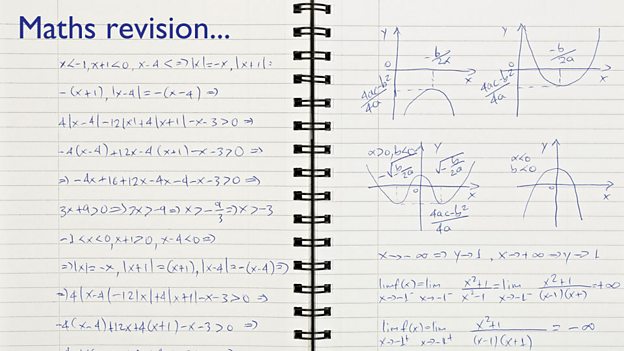Unit 6: Jurassic mystery: unpacking the past
Modals of deduction and speculation - present and past
Select a unit
- 1 Pop-ups
- 2 Hidden talents
- 3 Can't buy me love
- 4 Travellers' tales
- 5 The colleague from hell
- 6 Jurassic mystery: unpacking the past
- 7 Career changes
- 8 Art
- 9 Project management
- 10 The dog ate my homework!
- 11 The diary of a double agent
- 12 Fashion forward
- 13 Flat pack skyscrapers
- 14 Extreme sports
- 15 Food fads
- 16 Me, my selfie and I
- 17 Endangered animals
- 18 A nip and a tuck: cosmetic surgery
- 19 I'm really sorry...
- 20 Telling stories
- 21 Fakes and phrasals
- 22 Looking to the future
- 23 Becoming familiar with things
- 24 From rags to riches
- 25 Against the odds
- 26 Our future on Mars?
- 27 Where is it illegal to get a fish drunk?
- 28 Dodgy dating
- 29 Annoying advice
- 30 I'll have been studying English for thirty weeks
Session 1
We're looking at the prefixes de-, dys-, and dis- in this unit. Join us for 6 Minute Vocabulary, and then do two activities to test your knowledge of prefixes!
Activity 3
Prefix revision
Re-, pre-, pro-, in-, un-, mis-
There are lots of prefixes to learn in English. In our pre-intermediate course we looked at six more: re-, pre-, and pro- in Unit 24, and un-, in- and mis- back in Unit 3.
First, let's revise the meanings of these prefixes! Later, we'll do a test.
1) re = again
- reheat (heat again), reuse (use again), replay (play again), revise (look at again)
2) pre = before, already
- precooked (cooked already), prepacked (packed already), prewar (before a war)
3) pro = in support of, in favour of (often followed by a hyphen)
- proactive (in favour of being active), pro-British (in favour of Britain), pro-capitalist (in favour of capitalism)
4) un = not
- unclean (not clean), unhygienic (not hygienic), unhappy (not happy)
5) in = not
- incomplete (not complete), intolerant (not tolerant), inaccurate (not accurate)
6) mis = wrong, or not
- mishear (to hear incorrectly), misunderstanding (a situation when people understand each other wrongly), mislead (to make someone believe the wrong thing)
Read the text and complete the activity

To do
It's time to see if you can build some more vocabulary. Revision is important before an exam, as we know. Let's read about a young man called Richard as he revises for his exams. Can you fill in the gaps in the story with the correct words, even if you haven't seen them before?
Choose the prefix
7 Questions
You might not know all these words, but it doesn't matter! Use your knowledge of prefixes to fill the gaps.
Help
Activity
You might not know all these words, but it doesn't matter! Use your knowledge of prefixes to fill the gaps.
Hint
He does well in exams, so he is intelligentQuestion 1 of 7
Help
Activity
You might not know all these words, but it doesn't matter! Use your knowledge of prefixes to fill the gaps.
Hint
We're looking back in time, to where he went before school startedQuestion 2 of 7
Help
Activity
You might not know all these words, but it doesn't matter! Use your knowledge of prefixes to fill the gaps.
Hint
It's not severe... it sounds like it could be a medical condition. Which prefix do we need in that case?Question 3 of 7
Help
Activity
You might not know all these words, but it doesn't matter! Use your knowledge of prefixes to fill the gaps.
Hint
Which prefix is used when things are 'wrong'?Question 4 of 7
Help
Activity
You might not know all these words, but it doesn't matter! Use your knowledge of prefixes to fill the gaps.
Hint
They want him to go, so they're in favour of university.Question 5 of 7
Help
Activity
You might not know all these words, but it doesn't matter! Use your knowledge of prefixes to fill the gaps.
Hint
We're looking for something that means 'not convenient'Question 6 of 7
Help
Activity
You might not know all these words, but it doesn't matter! Use your knowledge of prefixes to fill the gaps.
Hint
What would mean 'to make fresh again'?Question 7 of 7
Excellent! Great job! Bad luck! You scored:
End of Session 1
Well done. We hope that next time you see a word starting with one of these prefixes you'll feel a bit more confident, not unconfident! In Session 2 we're looking at modals of speculation and deduction, things like might, may and could...
Session Vocabulary
What do these prefixes mean?
re
againpre
before, alreadypro
in support of, in favour of (often followed by a hyphen)un
notin
notmis
wrong, or not